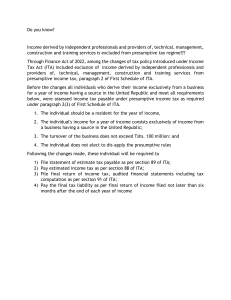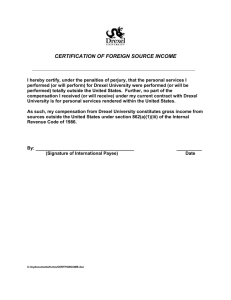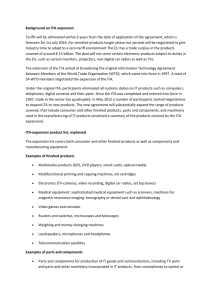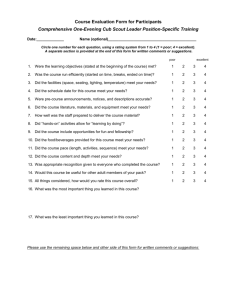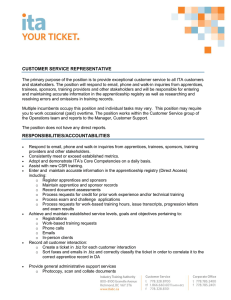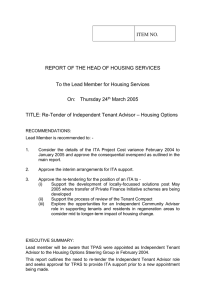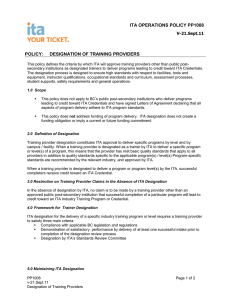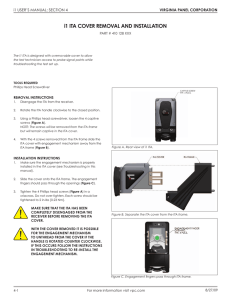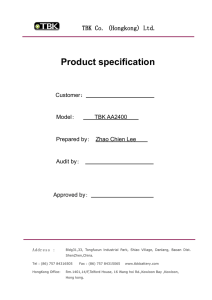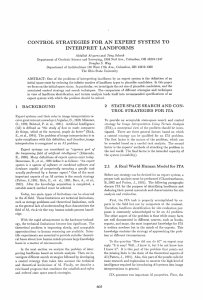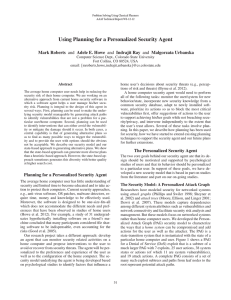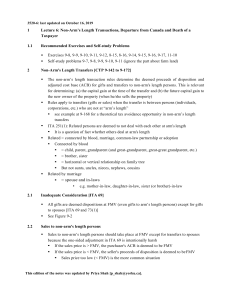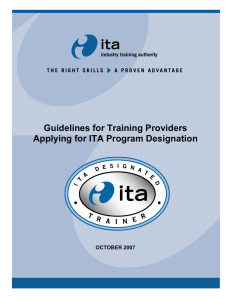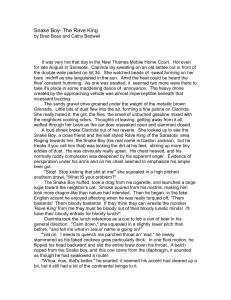Helpful Hints for New ITA’s ... These are suggestions provided by ITA’s in the 2013 ITA...
advertisement
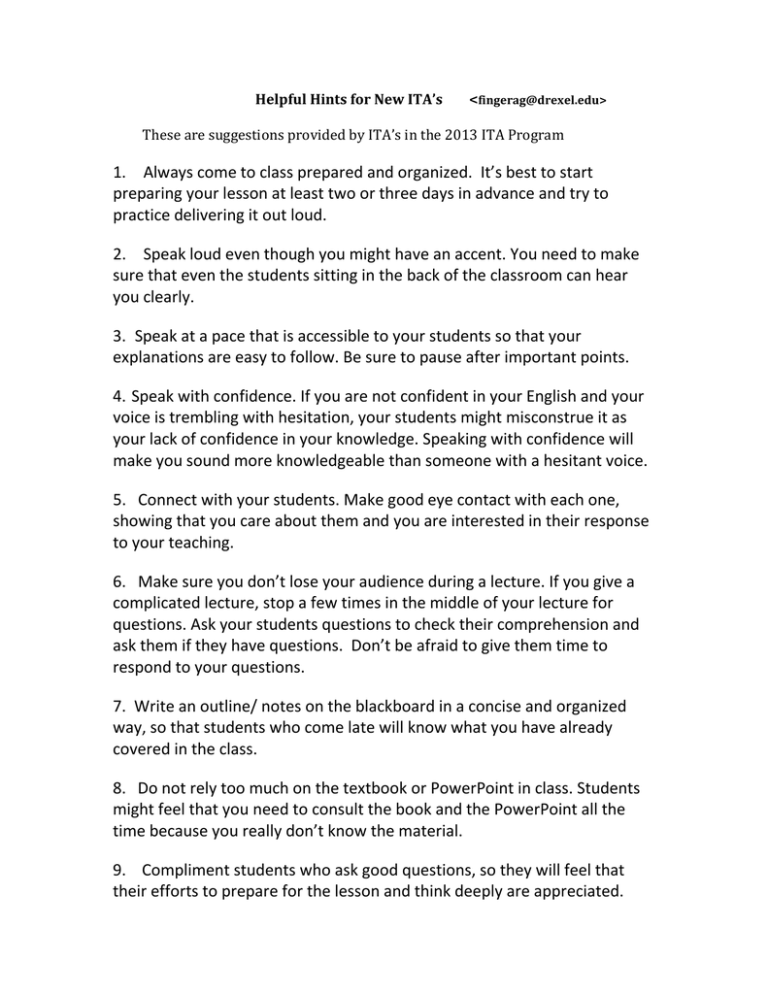
Helpful Hints for New ITA’s <fingerag@drexel.edu> These are suggestions provided by ITA’s in the 2013 ITA Program 1. Always come to class prepared and organized. It’s best to start preparing your lesson at least two or three days in advance and try to practice delivering it out loud. 2. Speak loud even though you might have an accent. You need to make sure that even the students sitting in the back of the classroom can hear you clearly. 3. Speak at a pace that is accessible to your students so that your explanations are easy to follow. Be sure to pause after important points. 4. Speak with confidence. If you are not confident in your English and your voice is trembling with hesitation, your students might misconstrue it as your lack of confidence in your knowledge. Speaking with confidence will make you sound more knowledgeable than someone with a hesitant voice. 5. Connect with your students. Make good eye contact with each one, showing that you care about them and you are interested in their response to your teaching. 6. Make sure you don’t lose your audience during a lecture. If you give a complicated lecture, stop a few times in the middle of your lecture for questions. Ask your students questions to check their comprehension and ask them if they have questions. Don’t be afraid to give them time to respond to your questions. 7. Write an outline/ notes on the blackboard in a concise and organized way, so that students who come late will know what you have already covered in the class. 8. Do not rely too much on the textbook or PowerPoint in class. Students might feel that you need to consult the book and the PowerPoint all the time because you really don’t know the material. 9. Compliment students who ask good questions, so they will feel that their efforts to prepare for the lesson and think deeply are appreciated. 10. Encourage all students to participate in class by answering and asking questions. Let them know that their answers and questions contribute to everybody’s learning. 11. If a student asks a complicated question, try to rephrase the question and make sure that you and all the students in the classroom know what the question is before you start answering it. After you answer the question, check with the student who asked the question to see if you answered the question clearly. 12. If you don’t know the answer to a question, don’t be afraid to tell the student candidly that you don’t know the answer. After class, you need to find the answer and get back to him /her or the entire class with an answer as soon as possible. 13. Return assignments in a timely fashion. Give your students constructive feedback on their work. 14. Be accessible to your students. Encourage your students to come to your office hours and try to respond to emails as soon as possible. 15. Be friendly with your students but not so friendly that they forget you are their instructor. 16. Deal with problems in the classroom in a calm and professional way. 17. Use the board as much as possible. Write key words on the board, especially those that you might not pronounce very clearly. All kinds of visuals will reinforce what you tell your students. 18. Repeat key words and concepts so that students who are having difficulty understanding you or the actual concepts or are busy taking notes will have a chance to “ catch” what you said. 19. Try to learn your students’ names and say them in a pleasant tone of voice. Don’t call on students in a way that embarrasses them. 20. Don’t be afraid to inject some humor in your classes. Laughter brings people together. 21. Smile and enjoy your opportunities to teach. Try to share your love of your subject and your knowledge and expertise with your students in an enthusiastic way. Suggestions for Acclimating Yourself to Your New Home (United States, Pennsylvania, Philadelphia, Drexel University) 1. Speak English – as least try to speak English as often as possible. 2. Don’t hang out exclusively with people from your country; try to meet as many people with different cultural backgrounds as possible. 3. Explore Philly. Visit historical sites in Philly so that you can get a sense of American history and culture and the importance of the city you are living in. 4. Don’ t be surprised by how American students behave. They may act vey differently from the way students in your country behave. Eventually, you will get used to their ways. 5. Smile- it is a universal language that everyone understands. 6. If you don’t understand something- ask! 7. If people correct your English, they do it with good intentions. Try to keep this in mind and adopt their suggestions. 8. Try to find food that is similar to your food back home and be willing to try new kinds of food. 9. Become familiar with the public transportation system in Philly. 10. Get used to sharing your opinion.


